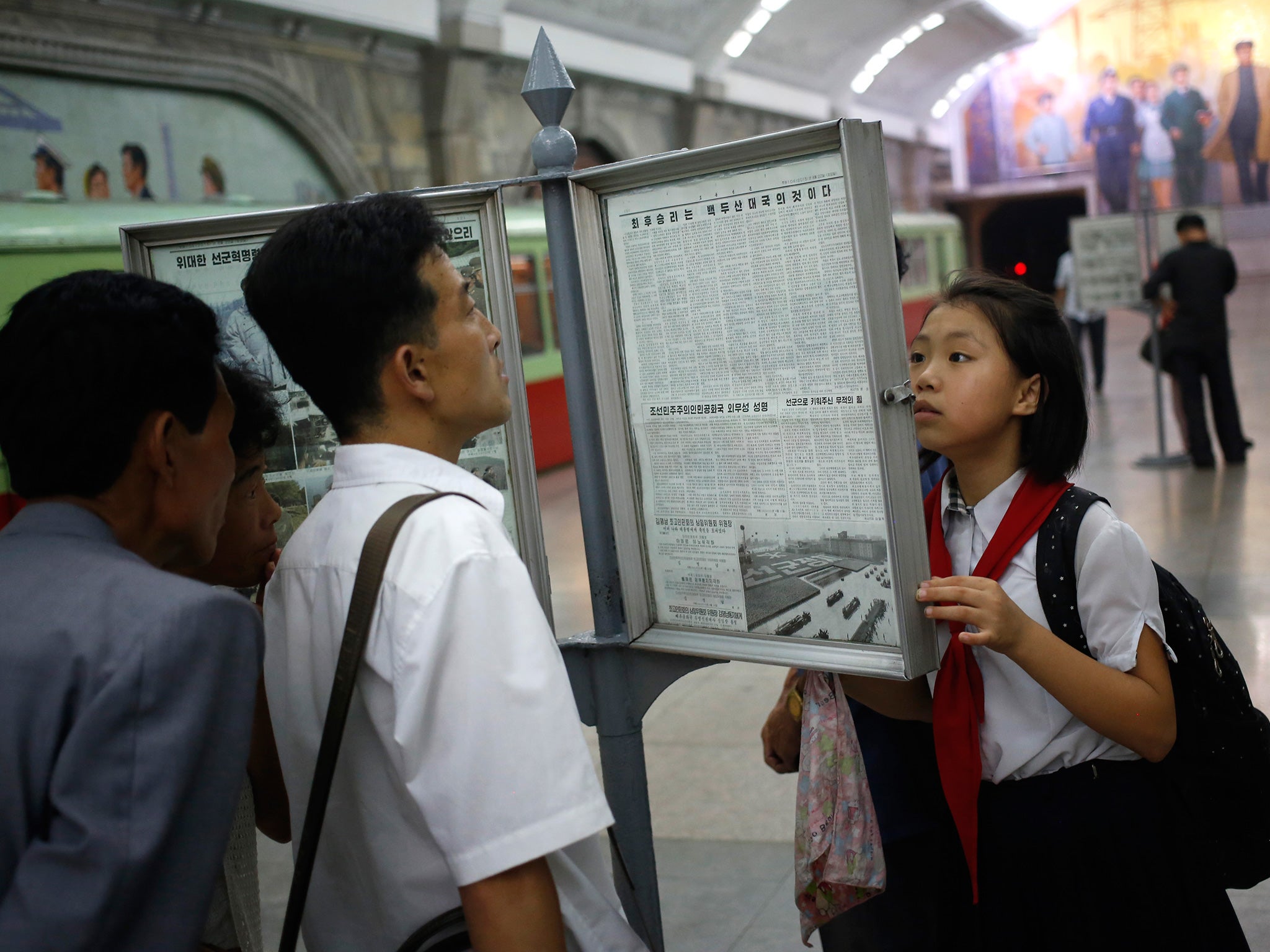BBC director Tony Hall plans to start broadcasting radio in North Korea for the first time
The Korean Central News Agency provides the only source of information for all media outlets in North Korea

The BBC is planning to include daily news broadcast in North Korea for the first time under a proposed expansion of its World Service.
In the first of a four-part response to the Government's review of the BBC's royal charter, Director General Lord Hall has set out his vision for the restructuring of the corporation, saying: "The BBC is a great national asset and we are all stewards for the next generation."
Included in its proposals, the BBC has said it wants to provide better coverage to countries where there is a "democratic deficit in impartial news".
"This is about upholding Britain’s place in the world and the promotion of British values," the corporation said in a statement.
The North Korean news broadcast will be provided over shortwave radio. Radios in North Korea are preset to the government-controlled frequencies, and only have news from the Korean Central News Agency, with the exception of shortwave radios.
Shortwave radios are banned but owning one does not usually result in criminal charges. Instead the sets are often confiscated and resold onto the black market by corrupt authorities.
North Korea is ranked 179 out of 180 countries on the annual Press Freedom Index published by Reporters Without Borders. The only country considered to have worse press freedom is Eritrea.
The BBC's plans include establishing a news service for Ethiopia and Eritrea on medium wave and short wave radio.
They have proposed to create either a satellite TV service for Russian speakers or to provide a bigger digital presence on Rutube, the Russian equivalent to YouTube.
The BBC also hopes to offer more regional content to its Arabic Service, with increased coverage of North Africa and the Middle East.
A BBC source told The Guardian: "We have a strong commitment to uphold global democracy through accurate, impartial and independent news. There should no longer be any no-go countries for the World Service."
The expansion of the World Service and the other proposed expansions that the BBC wants to make will need to be planned within the £750m less budget due to the BBC paying the licence fees for over-75s.
About the costing, the BBC said: "Funding for the World Service will need to be discussed with the Government, but the rest of the proposals would be funded within the confines of the budget agreement with the Government, and will not require any additional licence fee funding."
The new plans will require further efficiencies and a scale back of other operations, they said.
Join our commenting forum
Join thought-provoking conversations, follow other Independent readers and see their replies
Comments
Bookmark popover
Removed from bookmarks